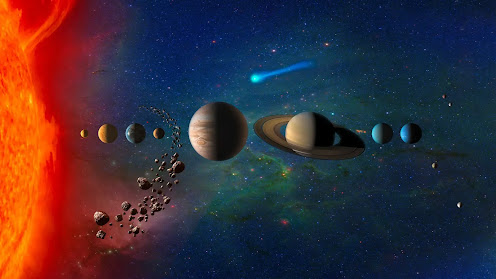Space Exploration Missions and Discoveries: Expanding Our Understanding of the Universe
Introduction
Space exploration has captivated human curiosity for centuries, driving us to venture beyond the boundaries of our planet and explore the vastness of the universe. Through dedicated missions and groundbreaking discoveries, we have expanded our knowledge of space, deepened our understanding of celestial bodies, and made remarkable advancements in scientific and technological fields. In this article, we will delve into the world of space exploration, highlighting notable missions and discoveries that have shaped our understanding of the cosmos.
Table of Contents
- The Beginnings of Space Exploration
- 1.1 Early Observations and Theoretical Advances
- 1.2 The Space Race: Milestones and Achievements
- 1.3 Human Spaceflights: Expanding the Frontier
- Unveiling the Mysteries of the Solar System
- 2.1 Lunar Exploration: Apollo Missions and Moon Landings
- 2.2 Mars Missions: Probing the Red Planet
- 2.3 Exploring Other Planets and Moons
- Observing the Universe: Deep Space Missions
- 3.1 Hubble Space Telescope: Unveiling the Cosmos
- 3.2 Exploring the Outer Solar System
- 3.3 Probing Exoplanets: The Search for Other Habitable Worlds
- Advancements in Space Technology and Science
- 4.1 Spacecraft and Robotic Probes
- 4.2 Space Telescopes and Observatories
- 4.3 Scientific Discoveries and Technological Innovations
- Conclusion
- FAQs
- 6.1 How do space missions contribute to scientific knowledge?
- 6.2 What are some notable space exploration milestones?
- 6.3 How do space telescopes capture images of distant galaxies?
- 6.4 What are the challenges of long-duration space missions?
- 6.5 What are the prospects for future space exploration?
1. The Beginnings of Space Exploration
1.1 Early Observations and Theoretical Advances
Space exploration traces its roots back to ancient civilizations when early astronomers made observations and developed theories about the cosmos. Contributions from notable figures like Galileo Galilei and Isaac Newton laid the foundation for understanding the laws of motion and the nature of celestial bodies.
1.2 The Space Race: Milestones and Achievements
The mid-20th century marked a significant era in space exploration with the onset of the Space Race between the United States and the Soviet Union. Notable milestones include the launch of Sputnik 1, the first artificial satellite, and the historic Apollo 11 mission that landed humans on the Moon.
1.3 Human Spaceflights: Expanding the Frontier
Human spaceflights have played a pivotal role in space exploration. The accomplishments of astronauts like Yuri Gagarin, Neil Armstrong, and Sally Ride have pushed the boundaries of human exploration and provided valuable insights into the challenges of living and working in space.
2. Unveiling the Mysteries of the Solar System
2.1 Lunar Exploration: Apollo Missions and Moon Landings
The Apollo missions of NASA's Apollo program achieved a major breakthrough in space exploration by successfully landing humans on the Moon. The Apollo 11 mission, in particular, stands as a monumental achievement, with Neil Armstrong becoming the first person to set foot on the lunar surface.
2.2 Mars Missions: Probing the Red Planet
Mars has been a focal point of exploration due to its potential for past or present extraterrestrial life. Missions like the Viking program, Mars rovers (such as Curiosity and Perseverance), and orbiters (like Mars Reconnaissance Orbiter) have provided valuable data about the planet's geology, climate, and potential habitability.
2.3 Exploring Other Planets and Moons
Spacecraft like Voyager 1 and Voyager 2 have embarked on groundbreaking interplanetary missions, providing detailed observations and imagery of the outer planets of our solar system. Missions like the Cassini-Huygens mission to Saturn and its moon Titan have revealed captivating details about these distant celestial bodies.
3. Observing the Universe: Deep Space Missions
3.1 Hubble Space Telescope: Unveiling the Cosmos
The Hubble Space Telescope, launched in 1990, revolutionized our understanding of the universe. It has captured awe-inspiring images and made significant discoveries about distant galaxies, nebulae, and other astronomical phenomena, contributing to our understanding of the universe's origin and evolution.
3.2 Exploring the Outer Solar System
Space probes like New Horizons have ventured to the outer edges of our solar system, providing detailed images and data about dwarf planets like Pluto and Kuiper Belt objects. These missions have expanded our knowledge of the diverse and intriguing worlds in our cosmic neighborhood.
3.3 Probing Exoplanets: The Search for Other Habitable Worlds
The quest for exoplanets—planets outside our solar system—has been a significant focus of space exploration. Missions like the Kepler Space Telescope and the Transiting Exoplanet Survey Satellite (TESS) have identified thousands of exoplanet candidates, deepening our understanding of planetary systems and the potential for habitable worlds.
4. Advancements in Space Technology and Science
4.1 Spacecraft and Robotic Probes
Space agencies worldwide have developed advanced spacecraft and robotic probes capable of withstanding the harsh conditions of space. These vehicles have allowed us to explore distant worlds, collect samples, conduct experiments, and transmit valuable data back to Earth.
4.2 Space Telescopes and Observatories
Space telescopes, free from the interference of Earth's atmosphere, have provided unprecedented views of the cosmos. In addition to the Hubble Space Telescope, missions like the Chandra X-ray Observatory and the James Webb Space Telescope (upcoming) continue to push the boundaries of astronomical observation.
4.3 Scientific Discoveries and Technological Innovations
Space exploration missions have led to numerous scientific discoveries and technological advancements. From understanding the formation of galaxies to developing materials and technologies for space travel, these achievements have practical applications on Earth, such as satellite communication and remote sensing.
5. Conclusion
Space exploration missions and discoveries have propelled humanity's understanding of the universe to new heights. From the Moon landings to the exploration of Mars and beyond, these endeavors have deepened our knowledge of celestial bodies, cosmic phenomena, and the potential for extraterrestrial life. Advancements in space technology and scientific research continue to push the boundaries of human exploration, inspire future generations, and pave the way for a future where space travel and discovery are commonplace.
FAQs
6.1 How do space missions contribute to scientific knowledge?
Space missions contribute to scientific knowledge by collecting data, conducting experiments, and making observations that enhance our understanding of celestial bodies, planetary systems, and the universe as a whole. They provide valuable insights into astrophysics, planetary science, and other fields of study.
6.2 What are some notable space exploration milestones?
Notable space exploration milestones include the first human-made satellite (Sputnik 1), the first human in space (Yuri Gagarin), the first Moon landing (Apollo 11), the first Mars rover (Sojourner), and the launch of space telescopes like Hubble and Kepler.
6.3 How do space telescopes capture images of distant galaxies?
Space telescopes capture images of distant galaxies by orbiting Earth above the atmosphere, which can distort and block certain wavelengths of light. By avoiding atmospheric interference, space telescopes can observe celestial objects with greater clarity and capture detailed images and data.
6.4 What are the challenges of long-duration space missions?
Long-duration space missions pose challenges such as radiation exposure, isolation and psychological effects on astronauts, resource management, spacecraft maintenance, and the need for life support systems. Addressing these challenges is crucial for the success of future manned missions to distant destinations.
6.5 What are the prospects for future space exploration?
The future of space exploration holds promising prospects. Missions to Mars, continued exploration of the outer solar system, advancements in interstellar travel, and the search for habitable exoplanets are among the areas of focus. Private space companies are also playing an increasingly significant role in advancing space exploration capabilities.







0 Comments